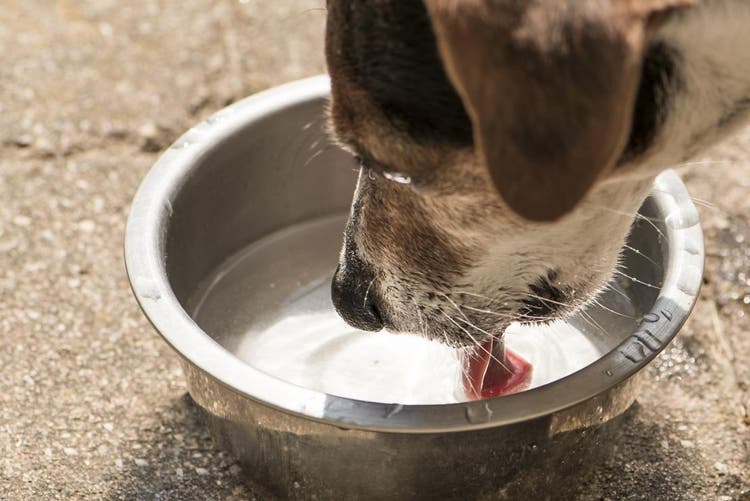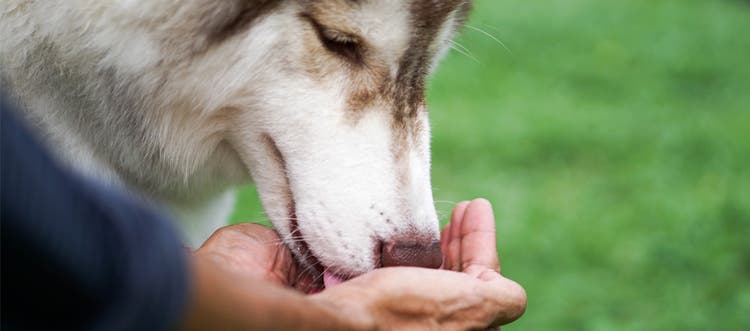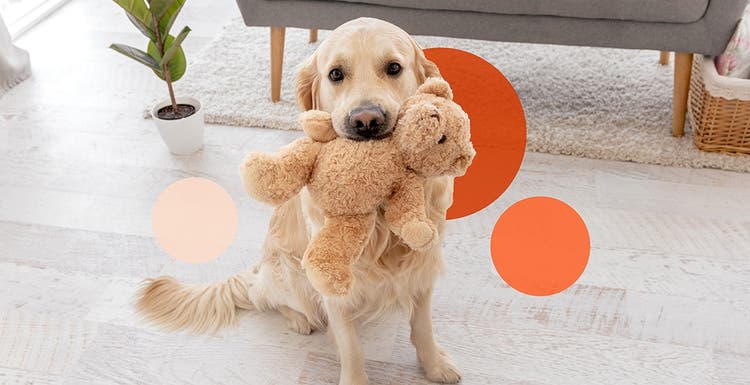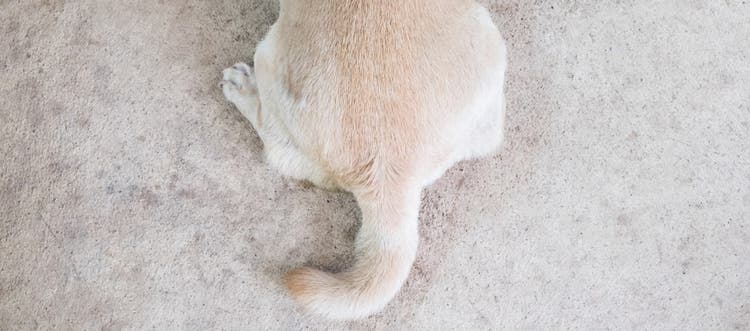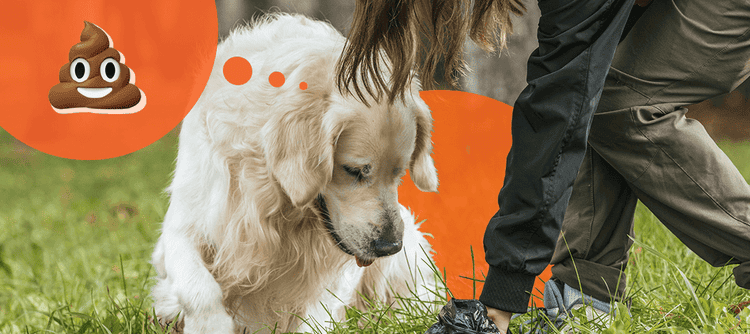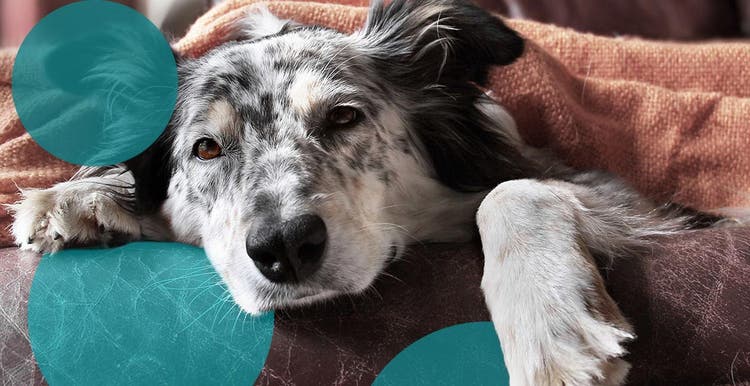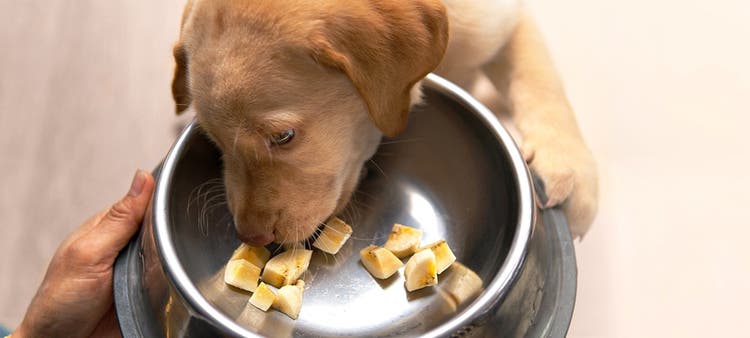Learn the causes and signs of dog constipation.
If you notice a major change to your dog's poop routine, you may, understandably, be concerned. Your dog's ability to poop can be disrupted by a number of issues, including an upset stomach, intestinal worms or diarrhea. However, constipation in dogs is very rare.
While constipation in dogs is uncommon and is usually a temporary issue, it can also cause discomfort and indicate a more serious problem. Here's what you need to know about changes to your dog's bowel movements and what they could mean.
Is My Dog Constipated?
Constipation in dogs is uncommon — in fact, it is rarely the cause of a disruption in a dog's elimination routine. If you notice your dog squatting or straining to relieve themselves, this behavior could have a number of causes:
- Diarrhea: Your pet may have a runny stool, which can be easy for owners to miss if they glance elsewhere while their dog relieves themselves. Dogs with diarrhea sometimes squat and attempt to eliminate because they feel they need to, leading their owners to assume their dog is constipated.
- Gastrointestinal (GI) upset or irritated colon or rectum: Dogs with GI upset or irritation of the colon or anus may squat and strain to relieve their discomfort. This doesn't necessarily mean they are trying to eliminate.
- Urinary tract infection (UTI): Female dogs with UTIs may squat more often than usual, thinking they need to urinate.
- Constipation: Although rare, dogs can suffer from constipation.
If you're unsure why your dog's behavior has changed, consult your vet.
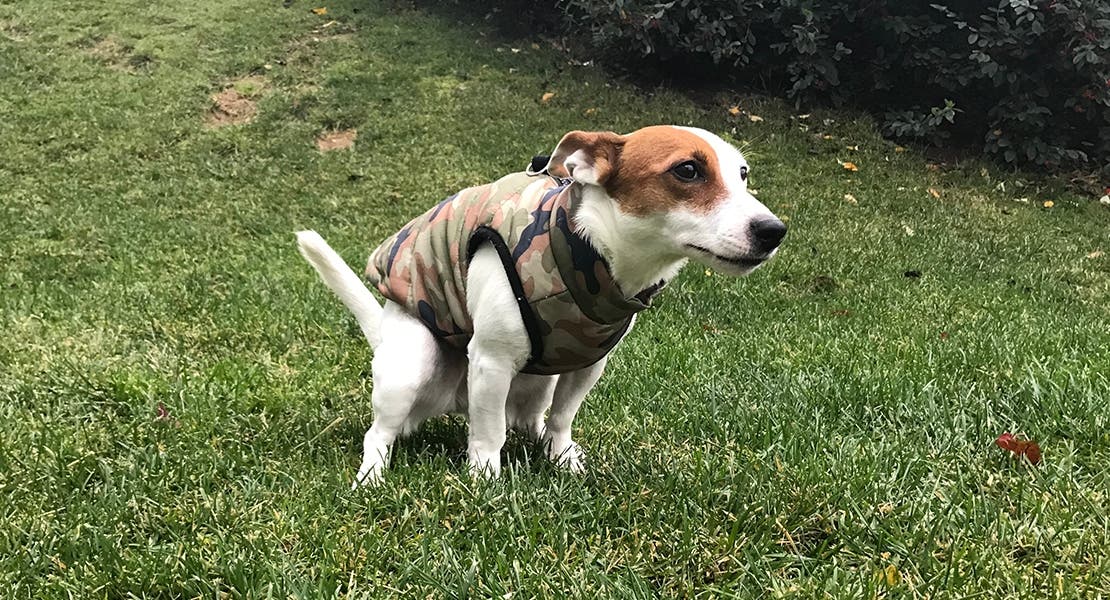
What Causes Dog Constipation?
Most dogs poop one to two times a day, so if you notice that your dog hasn't gone for a day or two, they may be constipated.
Usually, fecal material moves through a dog's digestive tract via the contraction and relaxation of muscles, known as peristalsis. If this process slows down, the fecal matter sits in the colon and becomes hard, dry and unable to pass.
Many things can cause a slowdown that leads to constipation, including:
- Anal gland issues
- Dehydration or electrolyte imbalances
- Diseases of the colon
- Enlarged prostate
- Excessive self-grooming, especially in dogs with long hair
- Intestinal worms
- Lack of fiber in the diet
- Lack of exercise
- Neurological problems
- Orthopedic issues, most often associated with the back end or hind legs
- Side effects of certain medications
- Something stuck in the intestinal tract, such as bones or rocks
- Tumors in the digestive tract, pelvis or anus
Signs of Dog Constipation
By paying attention to the frequency of your dog's bowel movements, it will be easier to notice if they are constipated.
Signs that your dog is constipated include:
- Not defecating for more than two days in a row
- Straining to defecate
- Obvious pain or discomfort (crying, whining or crouching) while trying to defecate
- Hard, dry stools that look like pebbles
- Blood or mucus in the stool
How to Help a Dog with Constipation
If your pup has only been constipated for a day or two, trying several at-home remedies can help a dog eliminate more quickly. These include:
- Adding a small amount of unsweetened canned pumpkin to their food
- Ensuring they have access to plenty of fresh water
- Adding wet food or unsalted broth to their meals
- Increasing their daily exercise
When to Contact Your Veterinarian
Any time you have a concern about your dog, contact your veterinarian, especially if the constipation lasts more than two days or if your dog is sluggish, vomiting or has no appetite. Chronic constipation can lead to obstipation, a severe medical condition in which the colon is unable to empty on its own. Make sure to provide your vet with as much information as possible. This could include:
- The time, color and consistency of your dog's last normal bowel movement
- Changes in diet or routine
- Medications or supplements your dog is taking
- Any injuries or other signs of discomfort
Your vet may recommend a medication or stool softener, prescribe a specific diet or administer an enema. Importantly, you should not give a constipated dog over-the-counter laxatives, as this could cause them harm.
Constipation can be very uncomfortable for dogs, but there are ways to help avoid it. While making sure your dog gets enough fiber, fresh water and exercise can assist in preventing constipation, you can also give them probiotics to help support proper digestion and bowel health.


